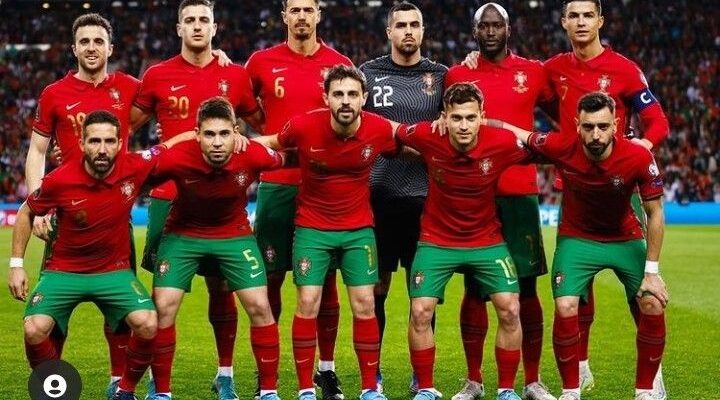Lisbon, Portugal – A significant shift is brewing in the landscape of Portuguese football, one that promises to reshape its financial future and elevate its global standing. The focal point of this impending transformation is the long-debated, often elusive, centralization of broadcasting rights. At the recent CNN Portugal Summit, Reinaldo Teixeira, President of Liga Portugal, stepped onto the stage to affirm a clear vision and an ambitious timeline, signaling a definitive path forward for a concept once deemed a distant dream.
Addressing a distinguished audience, including the Minister of Culture, Youth and Sport, Dra. Margarida Balseiro Lopes, and the Secretary of State for Sport, Dr. Pedro Dias, Teixeira confidently declared that the centralization process is not just underway, but is firmly set to come into force by the 2028-29 season. This isn`t merely a hopeful prognostication; it`s a commitment born from intensive, collaborative efforts.
Why Centralization Matters: A National Imperative
For years, Portuguese football has operated with a fragmented model for selling its broadcasting rights, a system that, while traditional, has often led to significant disparities in revenue among clubs. This decentralization has limited the collective bargaining power of the league, arguably hindering its ability to compete financially with Europe`s top-tier competitions. The move towards centralization, therefore, isn`t just about streamlining; it`s about leveling the playing field and unlocking the league`s full commercial potential. It`s about turning a collection of passionate clubs into a formidable, unified entity capable of attracting greater investment and global viewership.
“I am convinced that the process will enter into force in the 2028-29 season. We arrived 138 days ago, met dozens of times with the Sports Societies and various stakeholders, and I believe that football will set an example that it will be capable of building the path.”
— Reinaldo Teixeira, President of Liga Portugal
Teixeira`s tenure, just 138 days strong, has already been marked by “dozens of meetings” with Sports Societies and other stakeholders, illustrating a relentless pursuit of consensus. It`s a testament to the adage that even the most complex goals are achievable with persistent dialogue and a shared vision. The President`s assertion that “football will set an example” speaks volumes about the collective ambition to transcend historical divisions for a greater common good. This isn`t merely a bureaucratic overhaul; it`s a strategic pivot towards collective prosperity, a journey that demands unity and foresight.
The Blueprint for Valorization: Beyond Just Money
The vision articulated by Reinaldo Teixeira extends far beyond merely pooling resources. It’s a holistic approach to elevating Portuguese football as a marketable “product” on the global stage. He outlined several critical steps necessary for this valorization, a strategic roadmap to ensure that the increased revenue translates into tangible improvements and a more engaging experience for fans:
- Enhancing Game Quality: A laser-like focus on increasing effective playing time and reducing fouls, aiming for a more fluid, dynamic, and engaging spectacle. Because, let`s be honest, nobody tunes in to watch endless stoppages or overly aggressive play.
- Infrastructure Development: A commitment to investing in modern stadiums and state-of-the-art facilities, not just to improve player conditions but also to elevate the match-day experience for fans. After all, a vibrant, comfortable atmosphere is half the show, making every visit memorable.
- Optimizing Match Schedules: Strategically adjusting game times to attract more spectators to stadiums, ensuring that the passion of the fans is both seen and heard, creating an electrifying ambiance that resonates through screens and stands alike.
- Robust Product Defense: A significant commitment to combating piracy, which erodes revenue and undermines the value of the sport. This is a critical battle on the digital frontier, where the fight for legitimate viewership is constant and essential for protecting the league`s assets.
This comprehensive strategy underscores a fundamental truth: financial success in sports is inextricably linked to the quality and appeal of the product itself. The “talent português espalhado pelo mundo,” as Teixeira noted, is indeed coveted globally, but harnessing that talent requires a robust ecosystem capable of nurturing and showcasing it effectively. It`s about creating a league that is not only financially stable but also aesthetically pleasing and professionally managed.
A Promise of Prosperity and Protection
The implementation of centralization, guided by Decree-Law No. 22-B/2021, is expected to yield substantial returns for the Sports Societies. More equitable distribution of revenue means greater financial stability for clubs, enabling investments in youth academies, player development, and infrastructure – a virtuous cycle designed to strengthen the league from top to bottom. It`s about empowering even smaller clubs to compete more effectively, fostering a more competitive and unpredictable league.
Moreover, the emphasis on combating piracy through collaboration with the Government and security forces highlights a pragmatic approach to protecting intellectual property and ensuring that legitimate broadcasters and, by extension, the clubs, receive their rightful share. In an age where digital content theft is rampant, this united front is not just prudent; it`s essential for survival and for maintaining the economic integrity of the sport.
The Road Ahead: A New Golden Era?
With the 2028-29 season marked as the definitive deadline, the next few years will be crucial for solidifying the framework, educating stakeholders, and implementing the necessary operational changes. It`s a challenging undertaking, requiring meticulous planning and unwavering commitment from all involved. Yet, the palpable optimism radiating from Reinaldo Teixeira suggests that Portuguese football is on the cusp of a new chapter, one that could redefine its legacy.
This centralization isn`t just an administrative adjustment; it`s a strategic pivot designed to elevate Liga Portugal, making it more competitive, more attractive, and ultimately, more prosperous. For fans, it promises a league that is not only financially stable but also delivers a higher quality of football, supported by modern infrastructure and a robust defense against piracy. The wait has been long, but if Teixeira`s confidence is any indicator, the future of Portuguese football is about to get a lot brighter, potentially ushering in a new golden era for the beautiful game in Portugal.








